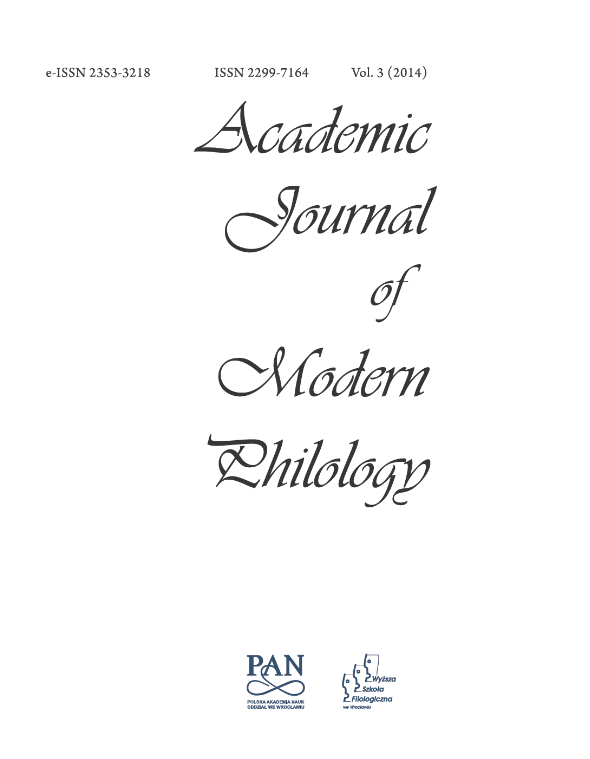Recenzja książki Roberto Mansbergera Amorosa pt. La Joven Europa y España: la cuestión de «el arte por el arte». Barcelona, 2013: Laertes. ISBN 978-84-7584-916-4, 466 stron
A Review of a Book by Roberto Mansberger Amorós entitled La Joven Europa y España: la cuestión de «el arte por el arte». Barcelona, 2013: Laertes. ISBN 978-84-7584-916-4, 466 pages
Author(s): Agata Draus-KłobuckaSubject(s): Essay|Book Review |Scientific Life, Book-Review
Published by: Komisja Nauk Filologicznych Oddziału Polskiej Akademii Nauk we Wrocławiu
Keywords: “art for art’s sake”; 19th century; art and morals; Young Europe; Spanish literature; Decadent movement and Restoration
Summary/Abstract: The literary history of the question: “Art for art’s sake” in Europe and, more specifically, in Spain, is the subject of the book by Roberto Mansberger Amorós entitled La Joven Europa y España: la cuestión de «el arte por el arte» (Young Europe and Spain: the question of «art for art’s sake», written in Spanish). The book is composed of six chapters, along with the introduction, conclusion, extensive bibliography and index of names. The chapters focused on the general history of the idea alternate with those dedicated to the particular writers and thinkers. Chapter 1 presents the theory of “art for art’s sake,” its origin and progress. Chapter 2 introduces the subject of Young Europe, with the focus on Young Poland and Young Spain. Chapter 3 is an extensive digression about the subject of morals in Spanish 19th century literature, aesthetics, ethics and critics. Chapter 4 studies the individual stances of Valera and Campoamor, whereas chapter 5 undertakes the issue of the Decadent movement and the Restoration. The sixth and final chapter describes the poetry and the poets related to the concept “art for art’s sake.” The uniqueness of the book rests on the combination of the balanced analyses of literary sources and original period documents and archival material of Real Academia Española concerning the issues of art and morals, along with a reflection about the historical, philosophical and ideological context of the matter. Since this kind of profound knowledge united with the ability to write both persuasively and interestingly is rare, the book by Mansberger Amorós is an enlightening reading experience not only for specialists on the topic, but also for all those interested in the history of Spanish literature and ideas.
Journal: Academic Journal of Modern Philology
- Issue Year: 2014
- Issue No: 3
- Page Range: 157-162
- Page Count: 6
- Language: Polish

